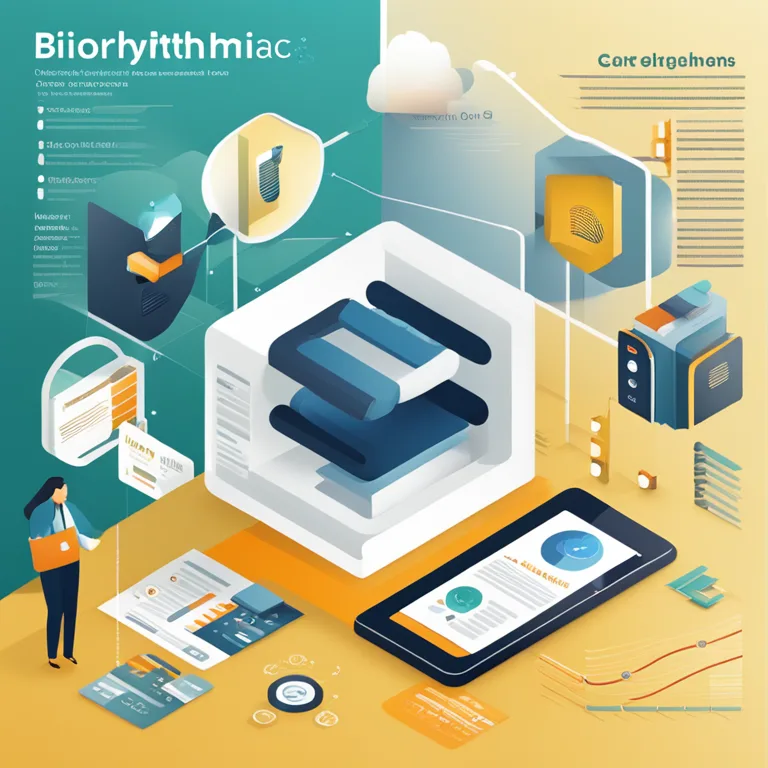
The Interplay of Biorhythms & Human Behaviour
Discover the pivotal role biorhythms play in shaping our psychological state and behavior, delving into this fascinating branch of biopsychology.
article by Adrian Wallace
Foundations of Biorhythmic Psychology
To delve into the concept of biorhythms in psychology, it's essential to understand their foundation. Biorhythms are understood to be the natural, cyclic patterns within our lives that influence our physical, emotional, and intellectual states. Rooted in the idea that our lives are guided by natural rhythmic cycles, biorhythmic psychology examines how these rhythms interweave with our mental and emotional well-being. The theory is not universally accepted in scientific circles, yet it captivates many by offering a personalized blueprint of our body's natural rhythms.

Physical, Emotional, and Intellectual Cycles
Three primary cycles are central to biorhythmic theory: the 23-day physical cycle, the 28-day emotional cycle, and the 33-day intellectual cycle. These overlapping cycles purportedly influence various aspects of our daily life, from decision-making and problem-solving to interpersonal relationships and physical performance. As we move through 2024, the proponents of biorhythms continue to argue for the relevance of these cycles, despite skepticism from the broader scientific community.

Biorhythms in Daily Life
How do these biorhythms manifest in our daily lives? Proponents suggest that being in tune with your biorhythms could lead to heightened awareness about when to push for that workout regime or buckle down for an intense study session. Moreover, being aware of one's emotional cycle could guide individuals to better navigate social interactions or personal relationships, theoretically leading to enhanced understanding and empathy within one’s personal and professional life.

Modern Biorhythmic Tools
As we step further into the digital age, the tools for tracking biorhythms have evolved. No longer confined to paper charts and calculations, individuals now have access to apps and online platforms that predict their biorhythmic cycles. Using algorithms and user data, these modern tools provide personalized readings that are meant to help users make informed decisions about their day-to-day activities in alignment with their biorhythms.

Scientific Scrutiny and Public Fascination
Despite the fascination with biorhythms, scientific scrutiny remains high. Critics argue that there is a lack of empirical evidence supporting biorhythmic cycles and their impact on behavior. Nonetheless, public fascination persists, with many looking to biorhythms for guidance in self-improvement and personal growth. This continued interest fuels research and discussion within the interdisciplinary fields of psychology, biology, and even astrology.
Integrating Biorhythms into Lifestyle Choices
For those who subscribe to biorhythmic principles, incorporating this knowledge into lifestyle choices can be empowering. It encourages individuals to align their activities with their body's natural ebb and flow, potentially optimizing well-being and productivity. Whether it's choosing the right time to initiate projects or identifying periods of vulnerability, biorhythms offer a unique lens through which to view one's personal journey.
Future Directions and Biorhythmic Research
Moving beyond 2024, the intersection of biorhythms and psychology remains a fertile ground for exploration. While definitive scientific backing is yet to be secured, the intrigue surrounding biorhythms provokes intriguing questions about the interconnectedness of our biological clocks and mental health. Continued research could pave the way for a deeper understanding of these cycles and their legitimacy as a factor in psychological frameworks.
Published: 1/4/2024
Modified: 1/4/2024
More predictions
Come back here soon to learn more about yourself and your future


The Practical Uses of Biorhythms In Today's Life
Discover the significant applications of biorhythm theory in everyday living, from health optimization to decision-making.


The Impact of Biorhythm Compatibility
Discover the impact of biorhythm cycles on relationship dynamics and compatibility in our insightful article.


The Accuracy of Biorhythms: Fact or Fiction?
Examine the validity of biorhythms in predicting personal vitality and life cycles in this in-depth analysis.